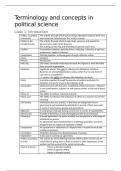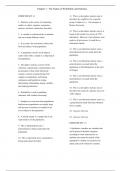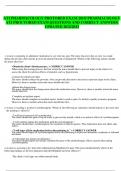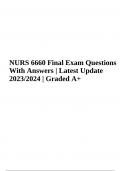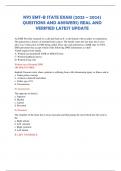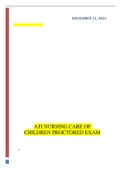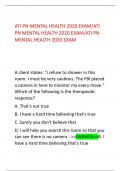Samenvatting
Summary Foundations of Comparative Politics - Introduction to Political Science (009458)
- Instelling
- Vrije Universiteit Brussel (VUB)
Need help with (introduction to) political science? This is a document with a summary of all important concepts talked about in the handbook used in the 1st bachelor of social sciences at vub. It's a clear summary: a table with all terms/concepts and a clear, concise explanation.
[Meer zien]
